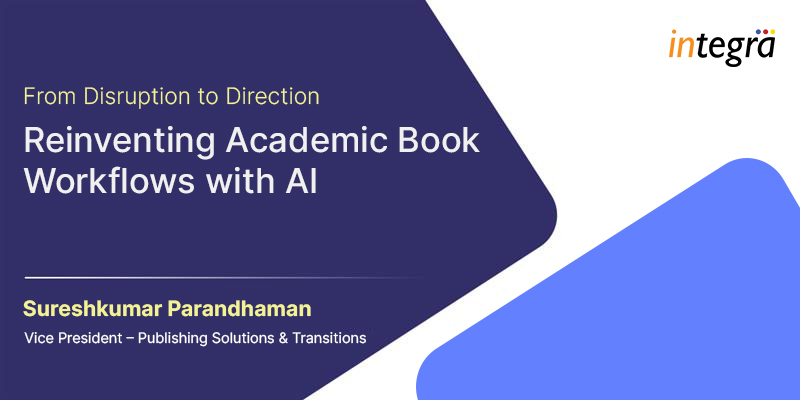The 10-Point Manuscript Checklist for High-Quality Journal Submissions

Journals and publishers not only disseminate knowledge, but they also serve as gatekeepers of what academic information reaches the world. The global academic industry relies on them to uphold the integrity and quality of research for the advancement of knowledge. Based on the popularity of a journal, acceptance rates vary massively between a little over 1% and 93.2%. Naturally, the more popular journals and those with a broader scope have lower acceptance and higher submissions.
In the rapidly globalizing digital academic research ecosystem, it has become even more difficult for authors to get their manuscripts through the initial stage of acceptance. Here’s a checklist to ease the process for authors.
1. Focus on the Format
With AI-powered first-level analysis, rejection due to minor styling and formatting mistakes is quick and disappointing. The good news is that the same technology is available for authors to ensure they meet the requirements of margin, font, spacing, and reference guidelines. Ensure that your file type, numbering, heading, style etc. are on point.
2. Manuscript Structure
Starting with the abstract, introduction, and methodology, to results and conclusions, all elements are critical in a manuscript. AI-powered tools such as AuthorPilot empower authors to ensure they comply with journal guidelines and maintain consistency across footnotes, titles, and acknowledgments to navigate the completeness criteria successfully.
3. Language Quality
For journals distributed across the world, language quality is not just about standardization, but is a reputational concern. Maintaining clear, concise, and correct language is essential for professional publishing. Moreover, it ensures that the intent is adequately communicated to the reader. Authors can leverage AI-powered language and grammar assistance tools or outsource it to service providers to ensure they meet the language quality requirements of a journal.
4. Logical Flow and Organization
The next key reason for manuscript rejection is the logical flow of ideas and content organization. AI-powered tools can assess the coherence of content flow from one section to the next, and throughout the manuscript. Adequate use of headings and subheadings, and reasonable section sizing are critical to improving readability.
5. Facts and details
Any inconsistency in facts and details, or misinformation is considered extremely unprofessional in the publishing space. Failure to maintain accuracy or provide credible sources can amount to rejection in the peer-review or proofreading stages. Therefore, authors must carefully check and cross-check all stated facts and their interpretations. Look out for details such as non-repetition of data on both the tables and the text, including additional information in the appendix etc.
6. Data Presentation and Analysis
Data is the key driver of conclusions. It backs the research and advocates for its correctness. Therefore, using robust, standardized analysis techniques, accepted by the journal, is the first step to drawing conclusions. Providing clear and correct tables, figures, graphs, etc., with appropriate naming, and appendix listing are also essential to ensure acceptance.
7. Author Information
The author’s information should include their full name, affiliations, co-author details, guest author details, and contributions of each, listed correctly and transparently. This helps maintain accountability and avoid any discrepancies later.
8. Results and Discussion Clarity
Ensuring that results are correctly derived, and conclusions are arrived at from logical inference are critical in research. Present all findings clearly and correctly, citing reference literature or data outcomes from your research in an unbiased manner. Also, stating how the inference relates to the research question or hypothesis facilitates understanding of the report.
9. Compliance with Ethical Standards
While compliance is essential for all fields of research, it is even more crucial for medicine and similar fields involving living subjects. Additionally, ethical concerns, such as plagiarism, inappropriate use of AI, conflicts of interest, etc., must be addressed with proper declarations in the manuscript, according to the journal guidelines.
10. Checklisit-ing Streamlines Manuscript Submission
Manuscript readiness assessment is essential to ensure acceptance across the various stages of publication. Adopting AI-powered tools can help authors expedite proofing and improve the accuracy of self-checks, while journals should consider adopting the technology to accelerate manuscript evaluation.
Following and regularly updating the checklist, in line with journal guidelines and industry standards, can significantly streamline manuscript submissions and improve acceptance rates. To expedite the process and improve its accuracy, enlist the help of industry experts like Integra, who offer state-of-the-art AI-powered manuscript authoring and editing tools. AuthorPilot, an AI-powered preflight platform, not only aligns with the key points of our checklist but enhances them through its advanced capabilities. From ensuring technical compliance and language quality to preserving the unique voice of the author, AuthorPilot acts as your intelligent assistant throughout the editorial process. Its machine learning algorithms, trained on a vast array of articles, provide nuanced and context-sensitive recommendations, significantly reducing the likelihood of desk rejections.
By integrating AuthorPilot into your manuscript preparation workflow, you can benefit from its comprehensive analysis and insightful feedback, ensuring that each submission adheres to the highest standards of scholarly publishing. It’s not just about ticking off the boxes in a checklist; it’s about empowering your manuscript to stand out in the competitive world of journal publishing.
Talk to us today to learn more.
Recent Blogs

Research Integrity vs. Publication Integrity: Clarifying Responsibility in Scholarly Publishing

From Disruption to Direction: Reinventing Academic Book Workflows with AI


